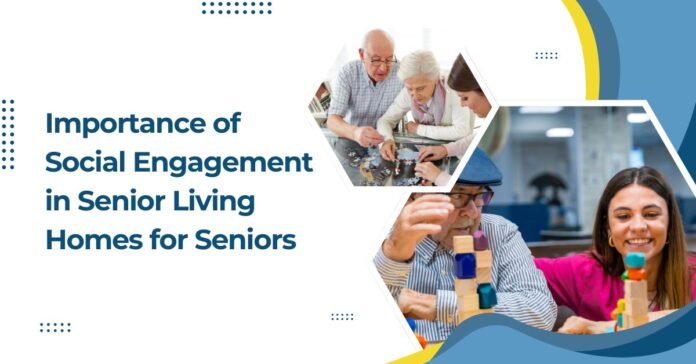Social engagement plays a pivotal role in enhancing the well-being of seniors residing in living homes. Beyond mere companionship, active participation in social activities offers profound benefits, ranging from improved mental and physical health to a heightened sense of purpose and community belonging. This exploration of the multifaceted importance of social engagement for seniors highlights its transformative impact on their overall quality of life, emphasizing the crucial role it plays in promoting happiness and longevity in their later years.
Understanding Social Engagement in Seniors
Social engagement in seniors is crucial for maintaining mental and physical well-being. Active participation in social activities helps reduce the risk of depression, cognitive decline, and loneliness. Engaging with others through community events, hobbies, or regular social interactions promotes a sense of purpose and belonging. These connections foster emotional support, enhancing overall quality of life and longevity. Encouraging seniors to stay socially active is essential for their health and happiness as they age.
How Does Social Engagement Enhance Psychological Well-being in Seniors?
Social engagement significantly enhances psychological well-being in seniors by reducing feelings of isolation and loneliness. Regular social interactions boost mood, lower stress levels, and provide emotional support. Engaging in meaningful activities with others stimulates cognitive function, helping to maintain mental sharpness. Additionally, a strong social network fosters a sense of belonging and purpose, contributing to overall happiness and life satisfaction. Encouraging social connections is key to promoting mental health and resilience in the elderly.
What Are the Importance of Social Engagement for Seniors?
Mental Stimulation and Cognitive Health
Social interaction is a mental workout for seniors, keeping their minds sharp and agile. Engaging in conversations, games, and group activities stimulates cognitive functions like problem-solving and memory retention. Research indicates that regular social interaction reduces the risk of cognitive decline in elderly individuals compared to those who lack social engagement, highlighting its crucial role in preserving mental acuity and overall brain health.
Emotional Well-being
Social engagement in senior living homes fosters emotional well-being by alleviating feelings of loneliness and depression. Building relationships within the community provides seniors with a sense of belonging and emotional support. Sharing laughter and experiences with peers uplifts their mood and enhances their emotional resilience. By nurturing friendships and social connections, seniors can maintain a positive outlook on life, promoting a sense of fulfillment and contentment in their daily lives.
Physical Health Benefits
Active social engagement often translates into physical activity, benefiting seniors’ overall health and well-being. Participating in group exercises, dance classes, or leisurely walks with friends promotes physical fitness, mobility, and cardiovascular health. Regular physical activity helps maintain strength, balance, and flexibility, reducing the risk of falls and other health complications associated with aging. It also enhances their independence and ability to perform daily tasks, contributing to a healthier and more active lifestyle.
Sense of Purpose and Meaning
Social interactions provide seniors with meaningful opportunities to contribute to their community. Engaging in group discussions, volunteering, or mentoring others fosters a sense of purpose and accomplishment. By sharing their knowledge and experiences, seniors feel valued and respected, boosting their self-esteem and mental resilience. This sense of purpose enhances their overall well-being and reinforces their role within the senior living community, promoting a fulfilling and meaningful life in their later years.
Improved Quality of Life
A vibrant social life significantly enhances the overall quality of life for seniors in living homes. It enriches their daily experiences, fosters a positive outlook on life, and helps them navigate the challenges of aging gracefully. Feeling socially connected and supported improves their satisfaction with their living environment and enhances their overall happiness and well-being. By prioritizing social engagement, senior living homes can create a nurturing and vibrant community where residents thrive and enjoy a fulfilling lifestyle.
In conclusion, social engagement in senior living homes is not just about companionship; it’s a vital component of overall well-being. From reducing feelings of loneliness to enhancing cognitive function and physical health, regular interaction and activities with peers and caregivers create a supportive environment that promotes happiness and longevity. By fostering meaningful connections and providing opportunities for participation, senior living facilities play a crucial role in enriching the lives of their residents, ensuring a fulfilling and vibrant community atmosphere. If you’re in Plano, TX, or a nearby area, seeking a senior care home that offers social activities and other amenities for its residents, you’ll find numerous options. Many senior care homes in Plano TX provide a diverse array of social engagement activities and events designed to enrich the lives of their residents.

